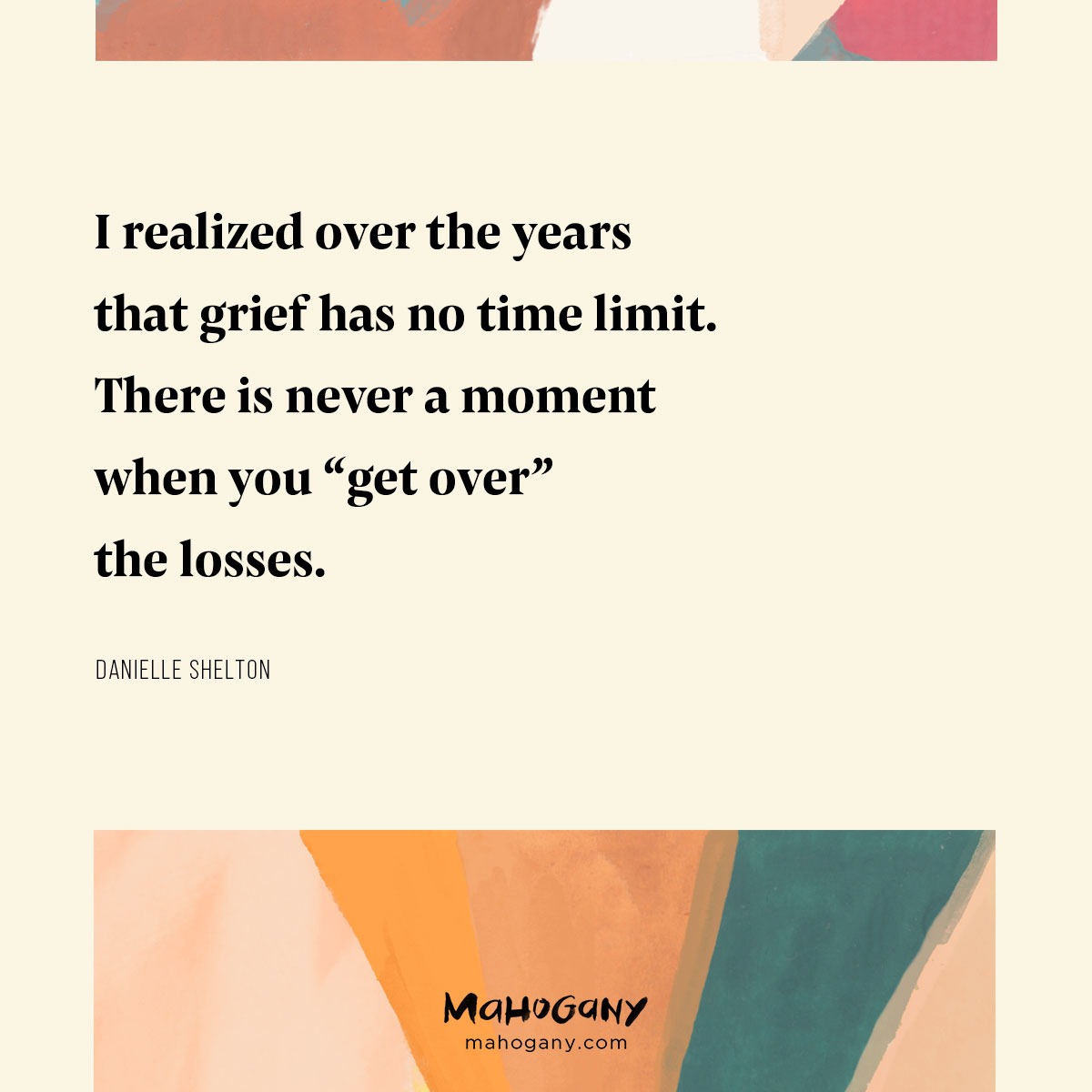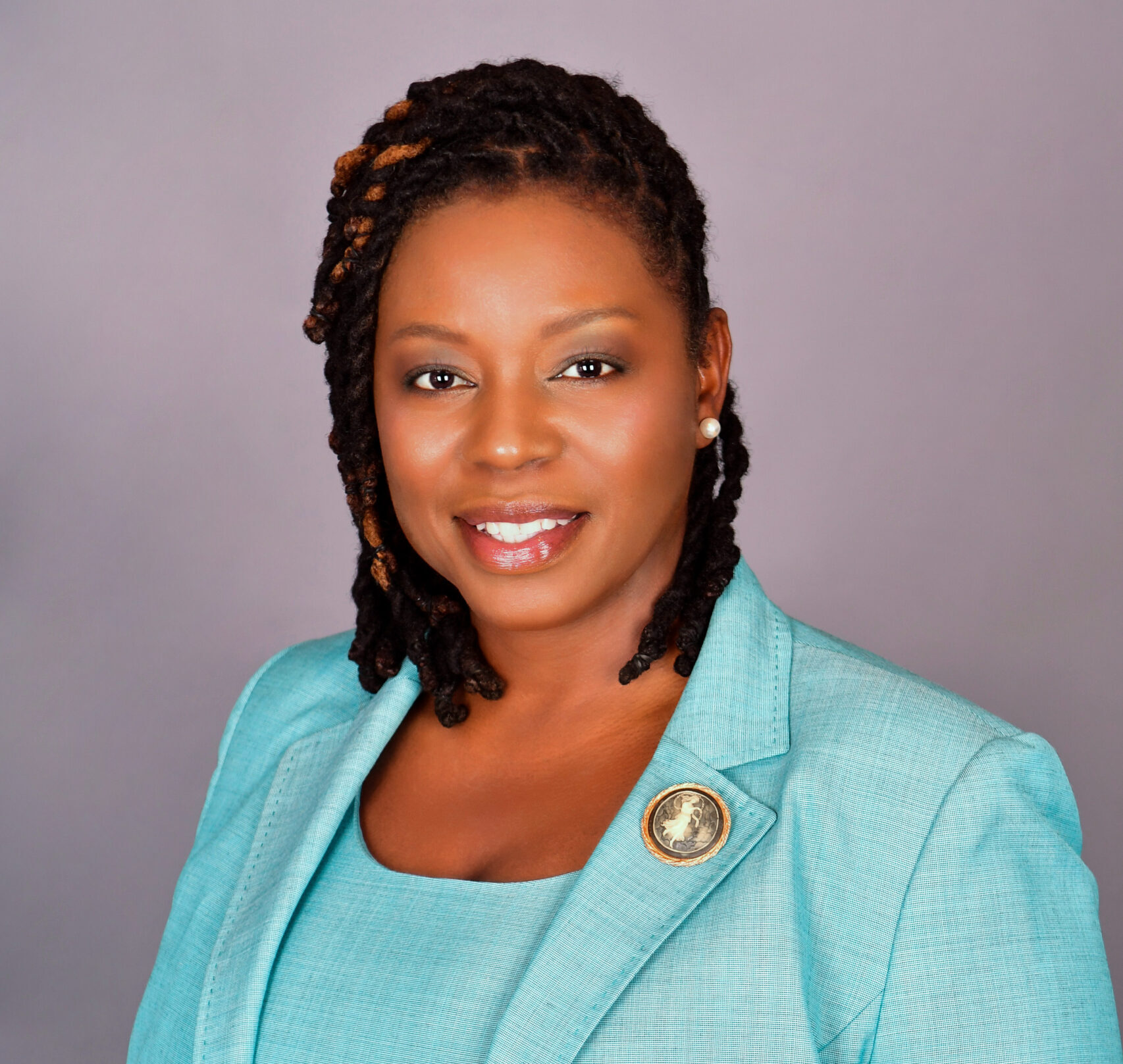I have suffered several losses—some of them within the same year. I can tell you with certainty that for each loss, the grieving period and process has been different. Grief and tears are not synonymous. Sometimes grief involves anger. Sometimes it involves depression. Sometimes it involves anxiety. And sometimes it is an all-consuming fire.
When I lost my grandmother Minnie Mae Goodrum in 1992, I was in middle school. I watched my mother and her siblings grieve. I watched each of them fall apart in their own way. At that time, I didn’t know that my longing for her was grief. Even now, I long for her.
My brother Fabian passed in 2014, a few days before his 40th birthday. I was in shock. I did not cry. My mother was my concern. I attempted to shield her, tried to give her what I thought she needed. I wish I’d captured the moment my daughter Zoe grabbed her uncle’s beard. She smiled. He smiled. They shared a laugh. Losing him stung. A lot. But there was no time for grief. My unsettling depression and newfound anxiety proved to me that I, in fact, was grieving even if I didn’t say it out loud.
When my grandfather Edgar Sr. passed in 2016, I was physically in the car on the way to see him. Literally driving. He was in the hospital but was doing better. The expectation was that he would be getting out of the hospital soon. My aunt called while I was enroute to tell me he’d taken his last breath. That pain. That one I wasn’t prepared for. When I arrived at the hospital he was still warm. I hugged him, kissed him, and sat next to him until he was taken away. I broke. But not for anyone to see. I felt like I had to be strong.
I allowed myself a few tears, but at this point my mother had lost both her parents and her son and she was not okay.
Neither was I. But my grief had to wait. I convinced myself that if I did not allow myself to feel, I was not grieving. My depression hit an all-time low and my anxiety was through the roof. My chest would pound uncontrollably; I would get dizzy spells. But I was okay, right?
Over time. I would have moments when I missed my grandfather’s wisdom. Moments when I missed his singing. I missed his old dirty truck. I missed the trips to Wendy’s to get a frosty and a six-piece nugget. I missed him. The pain of that loss has not found a home. It floats.
When I lost my father Robert in 2021, I was a bit more prepared. He allowed the doctors to tell me about his diagnosis in February. He passed in May on Memorial Day. With my father, I grieved the entire time. I cared for him and I grieved. I brought him food and I grieved. I made sure he ate and I grieved. I spent countless days and hours in hospitals and I grieved. I watched him slowly fade and I grieved. When he went to hospice, I grieved. And when he took his last breath, I completely fell apart. It all came rushing in and I. Just. Broke.
In that space, I did not grant myself grace.
I cut my grieving short to protect myself, protect my family, protect my daughter. She watched me, and though she cried at the thought of losing her grandfather, she told me she wanted to be strong for me. I gave her permission to feel her feelings because even at the age of seven, she wanted to cover me—much like I covered my mother.
There was a cost.
When I lost my uncle Edgar Jr. in 2021, my heart officially broke. I was no longer able to hold myself up. My uncle was everything to me. When he went to the hospital for pneumonia, there was no doubt he would get better. I went to see him every day and I kept my visitors passes from each day. I have them in a journal. I wasn’t prepared to lose him. I have officially lost every male elder that loved on me and protected me.
I learned during this process that grief is not linear. It is minute by minute. Day by day. Second by second. There are times when I am fine, and then there are times when I am not. I realized over the years that grief has no time limit. There is never a moment when you “get over” the losses.
My biggest loss was losing myself. I was too afraid to feel my feelings. I wanted to “keep pushing.” And I did—for a time. But then, it all came crashing down. My husband saw my brokenness, depression, and anxiety. He saw the emptiness. He tried to fix me, but he could not fix the voids.
They exist. And that is okay. I learned after my breakdown to give myself grace to grieve. I’ve learned to feel my feelings, cry my tears. Most of all, I’ve learned to love with every ounce of my being.
Leave a Comment



Thank you for sharing your truth
We all must have “The Grace to Grieve.” It is devastating to lose a loved one, but you know you still have to function to keep things going. You are so busy taking care of others that you neglect your own grief.
Thank you for sharing. I lost my beautiful mother less than a year ago. I ask God for strength, courage and Grace everyday. I am lifting you up in prayer. Grieving is a process. Everyone grieves differently. Take your time and feel the loss. May God continue To bless you!!
Death teaches one how to communicate spiritually. We see death as a loss but we can learn to see death also as a gain.
We only lose our love ones in the physical plane. They continue to exist in the spiritual world. We should learn how to talk to them as we do in prayer.
This helped me so much. Lost my sister right before my eyes the Friday before Mother’s day this year. We all had gathered at her house for a weekend filled with sisters activities. She had been planning it for months. I will never be the same. I have no parents, no grandparents (both sides) lost one brother and three sisters before this one. We talked everyday because we lived in different states. Grief is so hard and it never goes away. I was 10 years old in the 4th grade when my mother passed and I will never forget my dad and brother came to my classroom to get me to take me home. The memory is so vivid.
Thank you for sharing this very powerful testimony of grief and the many ways we deal abd don’t deal with it! We recently lost a dear family member and it has been a lot to process. She was young, the same age as my daughter. I can’t imagine what her mom is going through, but I know she is hurting. I will share your story with her, with the hope that she will see it’s okay to grieve, whenever and however and for as long as she needs to!